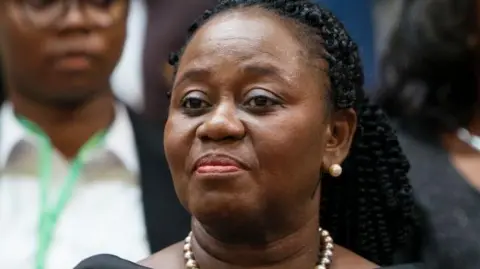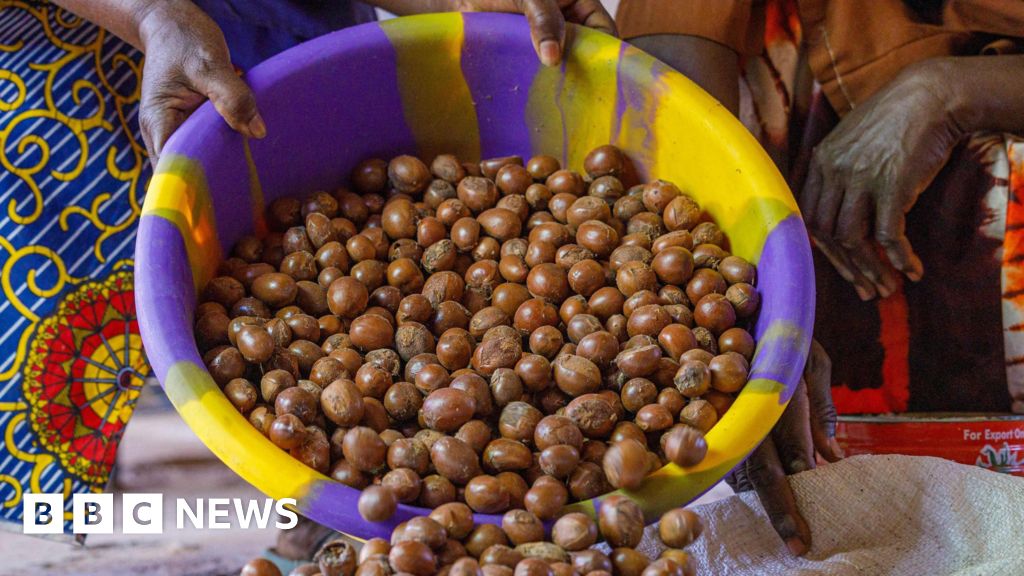The opioid epidemic gripping West Africa has a new face, and it's linked to criminal operations based in India. A recent investigation by BBC Eye has spotlighted Aveo Pharmaceuticals, a Mumbai-based company implicated in the illegal manufacture and export of unlicensed, highly addictive opioids. The firm is producing pills that combine tapentadol, a potent opioid, and carisoprodol, a muscle relaxant banned in Europe due to its addictive nature, and distributing them across vulnerable markets in West African nations such as Ghana, Nigeria, and Côte d'Ivoire.
According to reports, Aveo's pills are designed to mimic legitimate medication, but they pose severe health risks, including respiratory distress and seizures. Despite being unapproved and potentially deadly, these opioids have gained widespread popularity as street drugs in West Africa due to their affordability and easy availability. The BBC investigation discovered packets of these dangerous products with the Aveo brand being sold openly in various urban centers in Ghana, Nigeria, and Côte d'Ivoire.
The investigation took a turn for the dramatic when undercover reporters infiltrated Aveo's operations, where they recorded interaction with the company's director, Vinod Sharma. In a disturbing exchange, Sharma acknowledged the high potential for the pills to produce a euphoric “high” when consumed in large quantities—an interaction that starkly illustrates the moral disengagement of those profiting from the crisis. “This is very harmful for health,” he admitted casually, reinforcing the notion that for him and his associates, profit trumps the devastating repercussions on communities.
In response to the rising tide of opioid abuse, local leaders in Tamale, Ghana, are taking matters into their own hands. Alhassan Maham, a chief in Tamale, has assembled a volunteer task force dedicated to combating the drug scourge ravaging their youth. This task force recently conducted raids, seizing illegal opioids and witnessing first-hand the horrid impact on consumers, including youth found incapacitated in public.
The situation isn’t confined to Ghana. Public export data indicate that Aveo Pharmaceuticals, along with sister company Westfin International, is shipping millions of these opioids into Nigeria, a nation where roughly four million people struggle with opioid addiction according to local authorities. The Nigerian government has previously attempted to address this crisis by banning common opioids like tramadol, yet these measures seem to have only pushed traffickers to shift to even more dangerous substances produced by Aveo.
Despite the mounting evidence, when BBC reporters contacted Aveo Pharmaceuticals regarding these allegations, they received no response. The Indian government has expressed a commitment to regulating these practices, but many argue that far more stringent action is required given the international ramifications of these unchecked pharmaceutical operations.
In Tamale, the local task force even resorted to public burnings of seized drugs as a deterrent to sellers and suppliers engaging in this destructive business. Yet, the reality is stark. For every packet of drugs destroyed, countless others are likely still being manufactured and shipped from India, driven by profit amidst a devastating public health crisis.
As Nigerian journalist and undercover operative concluded, confronting one of the key players in this crisis underscores the urgent need for accountability and reform in an industry that is seemingly prioritizing profit over people. The road ahead remains difficult, but the fight against the opioid epidemic seemingly rooted in Indian pharmaceuticals continues to unfold.
According to reports, Aveo's pills are designed to mimic legitimate medication, but they pose severe health risks, including respiratory distress and seizures. Despite being unapproved and potentially deadly, these opioids have gained widespread popularity as street drugs in West Africa due to their affordability and easy availability. The BBC investigation discovered packets of these dangerous products with the Aveo brand being sold openly in various urban centers in Ghana, Nigeria, and Côte d'Ivoire.
The investigation took a turn for the dramatic when undercover reporters infiltrated Aveo's operations, where they recorded interaction with the company's director, Vinod Sharma. In a disturbing exchange, Sharma acknowledged the high potential for the pills to produce a euphoric “high” when consumed in large quantities—an interaction that starkly illustrates the moral disengagement of those profiting from the crisis. “This is very harmful for health,” he admitted casually, reinforcing the notion that for him and his associates, profit trumps the devastating repercussions on communities.
In response to the rising tide of opioid abuse, local leaders in Tamale, Ghana, are taking matters into their own hands. Alhassan Maham, a chief in Tamale, has assembled a volunteer task force dedicated to combating the drug scourge ravaging their youth. This task force recently conducted raids, seizing illegal opioids and witnessing first-hand the horrid impact on consumers, including youth found incapacitated in public.
The situation isn’t confined to Ghana. Public export data indicate that Aveo Pharmaceuticals, along with sister company Westfin International, is shipping millions of these opioids into Nigeria, a nation where roughly four million people struggle with opioid addiction according to local authorities. The Nigerian government has previously attempted to address this crisis by banning common opioids like tramadol, yet these measures seem to have only pushed traffickers to shift to even more dangerous substances produced by Aveo.
Despite the mounting evidence, when BBC reporters contacted Aveo Pharmaceuticals regarding these allegations, they received no response. The Indian government has expressed a commitment to regulating these practices, but many argue that far more stringent action is required given the international ramifications of these unchecked pharmaceutical operations.
In Tamale, the local task force even resorted to public burnings of seized drugs as a deterrent to sellers and suppliers engaging in this destructive business. Yet, the reality is stark. For every packet of drugs destroyed, countless others are likely still being manufactured and shipped from India, driven by profit amidst a devastating public health crisis.
As Nigerian journalist and undercover operative concluded, confronting one of the key players in this crisis underscores the urgent need for accountability and reform in an industry that is seemingly prioritizing profit over people. The road ahead remains difficult, but the fight against the opioid epidemic seemingly rooted in Indian pharmaceuticals continues to unfold.






















